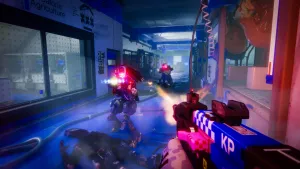Editorial: The Day-One DLC Defense

Gamers have a complicated relationship with downloadable content. We love the idea of our favorite games getting continued support – as long as the content is interesting, fun, not too peripheral to the core game, timed correctly, and worth the price tag. All those demands are difficult to satisfy, and if a publisher makes a misstep in any direction, the accusations start flying.
BioWare and EA sparked the most recent flare-up on the topic when gamers found out that Mass Effect 3 would have paid DLC (called “From Ashes”) available on launch day. The problem, according to upset fans, is that no game should have downloadable content available on day one. If content is ready to sell on launch day, it should be on the disc and included in the original purchase price. The decision to charge for this content blew up into a controversy. Some gamers insist that Mass Effect 3 is “incomplete” without the new party member in From Ashes, and others sabotaged the game’s user rating on score aggregating sites like Metacritic. Invested fans can be great for a series, but if they think they’re being mistreated, goodwill can be quickly transmuted into aggression.
I don’t think EA and BioWare are in the wrong, but I’m not writing this to defend them specifically. Day-one DLC is a hornet’s nest that has been kicked before, and each time I’m surprised by the outrage gamers display. DLC released on launch day is not an inherently evil ploy meant to give you less than you deserve; it’s a step in the right direction for how publishers and developers should support their games at release and beyond.
DLC is a part of the gaming industry now. Whether it’s downloadable weapons, new costumes, map packs, or story-focused episodes, gamers expect some degree of post-release support from most of the titles they buy. While the demand is there, publishers and developers are still struggling to find the best way to meet it. Quality is important; slapping a price tag on some recycled or re-skinned character models isn’t enough. Horse armor may have cut it in the early days of DLC, but gamers want something more substantial now that provides incentive to continue playing our favorite games.
Putting together proper DLC requires strategy, planning, and man-hours, which means developers begin working on the material in advance. Given the effort that good DLC requires, starting to think about it after the game’s release is simply too late. Some argue that this diverts development resources from the main game – heck, maybe that’s true – but it’s the only way we’re going to get quality DLC in a timely fashion, launch day or otherwise. Some cynics would respond to that by saying, “Great! Then don’t do downloadable content anymore.” However, this is where the whole “DLC is a part of the industry now” point is important; ignoring the earning potential of downloadable add-ons just isn’t an option for some titles anymore.

If we assume that DLC is going to happen regardless, and that gamers want it to be good instead of terrible, then we come to the core issue: timing. I understand the desire to get the most for your money. However, the presumption that a publisher owes you more content beyond the complete game you are purchasing is absurd, regardless of when it is released. When I buy a hamburger, I don’t get upset that I’m not given the fries for free, despite the fact that they are already cooked and ready to serve.
As ridiculous as it sounds, that’s essentially the alternative most of the upset fans are advocating with Mass Effect 3. They want From Ashes for free because it was finished, even though Mass Effect 3 is a fantastic (and, yes, complete) game out of the box. The funny thing is that the lesson that publishers are probably taking away from the ME 3 outcry isn’t that they should stop having DLC ready on day one. More likely, they are thinking that to avoid an incident, they should delay any DLC that’s already finished until three weeks after the game comes out. By opposing the idea of day-one DLC, you are essentially asking to be fed a fantasy in which you let yourself believe that the DLC wasn’t ready sooner or being worked on at the same time as the base game. If that helps you sleep better, fine – I’d rather have the content as soon as possible.
Launch-day DLC is not only acceptable; it’s better. Using BioWare as an example, the company released two downloadable party members for Mass Effect 2. The first was Zaeed, who was available at launch. The second character, Kasumi, was released several months later. I picked up Zaeed immediately and used him throughout the game. He isn’t “that DLC character” to me – he’s just a natural part of my Mass Effect 2 experience. By the time I got Kasumi, however, I had already beaten the game multiple times. My perception of Mass Effect 2 and its narrative had solidified, so she felt incidental and unimportant – a tacked-on cast member added too late.
In terms of your gameplay experience, day-one DLC only has advantages. It lets you enjoy the DLC during your initial experience rather than in piecemeal post-game segments, and the developers benefit because interest in a game is at peak levels near its release. The only people getting hurt are those who think they deserve more than they’re paying for, and I hope those aren’t the voices shaping publishers’ approach to DLC in the future.
This piece originally ran in issue 229 of Game Informer.









